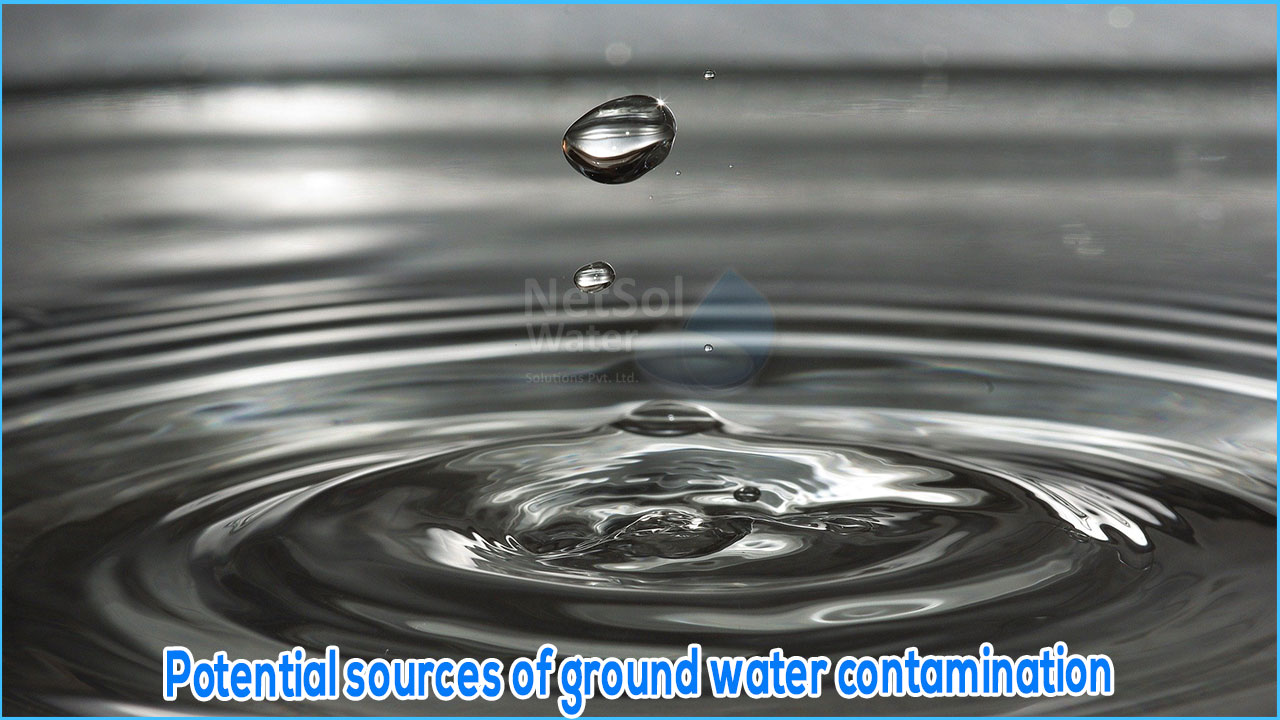Ground water
The water that has descended down from the soil surface and gathered between sediments and crevices in rocks is known as groundwater. The water then fills all of the empty areas beneath the surface until it reaches an impermeable layer of rocks deep underground. It is collected and contained in aquifers, which are bodies of rocks and sediments that accumulate water over time. It doesn't end there, though. Existing groundwater frequently moves until it is discharged into another aquifer or water body, such as a lake, spring, river, or ocean, or until it is extracted by a human-made well. It's also available for industrial applications like large-scale agriculture irrigation. Afterward, it is recharged by precipitation, snow melt, or water seepage from other sources, including irrigation and leaks from water supply systems.
What is ground water contamination?
Contamination is described as the introduction of any undesired physical, chemical, or microbial contaminant into a water source. Groundwater pollution can come from two sorts of sources: point sources and non-point sources. Landfills, leaking gasoline storage tanks, leaking septic tanks, and unintentional spills are examples of point sources; as the term implies, we can pinpoint the source of contamination. A point source is any discernible, restricted, and distinct channel from which pollutants are or may be emitted, according to technical definitions.Natural contaminants such as iron, arsenic, and radiological, as well as runoff from parking lots, herbicides, and fertilisers that infiltrate the soil and make their way into an aquifer, are examples of non-point sources.
Contamination of Groundwater: Potential Sources
Natural Resources- Human activity will not always cause groundwater contamination. Arsenic, iron, chlorides, sulphates, fluoride, and radionuclides, which are naturally found in rocks and soils, can dissolve in groundwater. Particles of other naturally occurring chemicals, such as decaying organic materials, can flow through groundwater. Before being used for home purposes, groundwater containing these pollutants must be treated.
Use of Pesticides and Fertilizers- Agriculture is a major polluter of groundwater. Pollutants such as nitrates and bacteria can leak into subsurface water sources when slurry, fertilisers, pesticides, fungicides, insecticides, herbicides, and animal faeces are sprayed on the land. Plants, animals, and people who rely on these water sources may be severely harmed by these pollutants. Some of them can even last for months or even years in the earth.
Sewerage and other pipeline waste- Occasionally, waste-transporting sewer lines leak fluids into the surrounding soil and groundwater. Organic debris, heavy metals, inorganic salts, bacteria, viruses, and nitrogen make up sewage. In the same way, septic systems that are incorrectly planned, situated, constructed, or maintained can leak bacteria, viruses, household chemicals, and other toxins into the groundwater, causing serious problems.
Improper Hazardous Waste Disposal- Many of us are unaware that how we dispose of waste has an impact on the quality of the groundwater we all depend on. Cooking and motor oils, lawn and garden chemicals, paints and paint thinners, pharmaceuticals, disinfectants, and other things that are incorrectly disposed of commonly wind up in groundwater wells.
Drilling for natural gas- Fracking, or hydraulic fracturing, is a method of drilling for natural gas. A chemical mixture is mixed with water and injected deep into fractures in the earth, allowing more access to the gas.
Quarrying and mining- Pollutants formerly confined in rocks can be released into subsurface water sources by mining and quarrying. These soluble compounds seep into the groundwater below due to precipitation. Acid, iron, sulphates, and aluminium are frequently found in these wastes.
Saltwater- When aquifers near the coast are over-pumped, a vacuum can form, which can be swiftly filled with salty seawater. Saltwater is unfit for drinking and irrigation, reducing the supply of already scarce freshwater.
Landfills- Landfills are places where our trash is dumped and buried. To prevent toxins from seeping into groundwater, they are supposed to have a protective bottom layer.
Atmospheric contamination- "What goes up must come down," as the adage goes. That idea, by the way, also applies to contaminants that are emitted into the atmosphere. Rain, snow, and other forms of precipitation eventually carry these toxins back to Earth. These contaminants are subsequently leached into groundwater by surface water.
How can Netsol help us to protect ourselves from these contaminations?
Installing a water filtration system is the most dependable technique to combat harmful toxins in your well water. Even if your water isn't contaminated, it's still a good idea to be prepared for the unexpected. Netsol RO systems are used to remove a variety of harmful pollutants from water, such as heavy metals, pesticides, organic and inorganic waste materials, microorganisms, and more. Thus by installing a proper water filtration system provided by Netsol you can safeguard your and your family’s health.




